Japan 10 yr casino permit obstacle for bank finance: Fitch
Sep 19, 2019 Newsdesk Japan, Latest News, Top of the deck
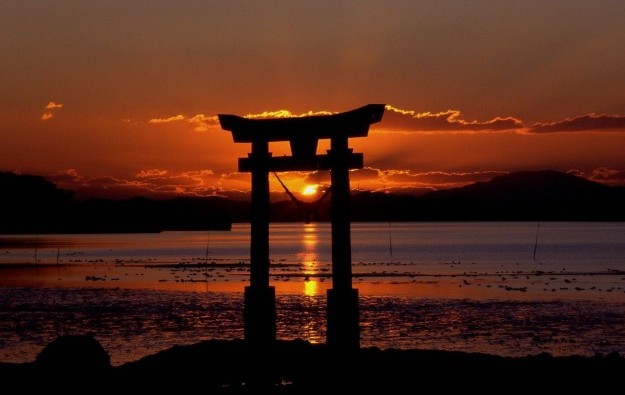
Japan’s requirement that any casino operating licences issued in that country be subject to a renewal process every 10 years is the “biggest obstacle to securing bank financing” for schemes that are expected to cost many billions of U.S. dollars each.
So said a special report issued on Wednesday by Fitch Ratings Inc, following a visit to the nation by Fitch analysts in the week beginning September 9.
What the ratings house described as the “10-year problem” was multifaceted, it said.
They included: “…a reapproval procedure imposed by the federal [sic] government every 10 years and the [resort-hosting] local government’s option to close operations if they are deemed not in the locality’s best interest.”
Fitch analysts Alex Bumazhny, Colin Mansfield and Roman Schorr added: “Stakeholders we talked to were confident that there would be some workarounds to these issues (e.g. local government indemnifying against a closure that is not a fault of the operator), but these issues remain the biggest obstacle at this time.”
Price tags of US$10-billion per resort have been mentioned by several suitors for a Japan casino licence – a maximum of three resorts will be permitted in a first phase of liberalisation. Fitch thinks they could cost as much as US$15 billion each.
What requirements will be put in place by Japanese authorities regarding capital expenditure ratios for IR consortiums involving international and local partners is not yet clear. The same is to say regarding potential financing requirements, whether cash or other form of equity, versus borrowings made on the strength of the likely income generated from a IR scheme.
Fitch said the possibility that such casino complexes – known in Japan as integrated resorts or “IRs” – could achieve 10-percent return on investment (ROI) annually was “doable but uncertain”.
Such projects were “far from slam-dunks” in terms of generating a “decent ROI”, described by Fitch as “10 percent or higher” annually, based on a formula measuring earnings before interest, taxation, depreciation and amortisation (EBITDA) over cost.
Tax, red tape
Fitch also gave some commentary on likely regulation including Japan’s proposed 30 percent tax on gross gaming revenue (GGR), which would be among the highest applied in the Asia-Pacific region. Macau’s effective rate is understood to be the highest at 39 percent.
“Besides the higher gaming tax rate that we were well aware of before our trip, operators will have to deal with high development costs and bureaucratic red tape (e.g. know-your-customer and other reporting requirements),” stated the Fitch team.
“We estimated US$10 billion in costs before the trip. We now think the proper cost range is US$10 billion to US$15 billion after accounting for supporting infrastructure investment and meeting the stipulated amenities such as the cultural requirements,” added Fitch.
Of two front-runner cities in the effort to host an IR – Osaka and Yokohama – the Fitch team described the former’s proposed location, Yumeshima, an island formed via reclamation from the sea, as “extremely large” at 47 hectares (116 acres).
“Although centrally located… the immediate vicinity is remote. We spent about five to 10 minutes driving through industrial/port facilities. Hence, the site may require considerable infrastructure to make it more approachable,” said the analysts.
By contrast, the proposed Yokohama site at Yamashita Wharf was “considerably more approachable”, said Fitch.
“It is surrounded by a park, high-end lodging, a large picturesque Chinatown and transportation infrastructure (highways, local/regional metro railways and a ferry).”
Haneda Airport – one of two large international air hubs serving the country’s capital Tokyo “is about 25 minutes away” from Yamashita Wharf, noted Fitch.
Fitch expects annual GGR per resort – wherever located – to exceed by a “rough estimate” US$10 billion, “significantly up from our prior forecast of US$7 billion”.
“The main difference is we no longer think that casino floor size will be a major inhibitor as operators will have considerable leeway under the regulatory limit (up to 3 percent of the resorts’ total area could be designated for casino),” they noted.
Fitch assumed in its calculations 6,000 slots and 700 tables at each at the major resorts, with win per unit per day “similar to that” of Marina Bay Sands, Las Vegas Sands Corp’s Singapore casino property; i.e. “US$792 for slots and US$9,563 for tables in 2018”.
Related articles
-
 Lotte Tour, GKL, step up Japan...
Lotte Tour, GKL, step up Japan...Apr 24, 2024
-
 LVS group refinancing likely hailed by...
LVS group refinancing likely hailed by...Apr 23, 2024
More news
-
 FBM launches Philippines online...
FBM launches Philippines online...Apr 24, 2024
-
 Osaka IR clinches US$3.42bln loan with...
Osaka IR clinches US$3.42bln loan with...Apr 24, 2024
Latest News
Apr 24, 2024
Gaming technology and content provider FBM has launched an online gaming platform in the Philippines, called FBM E-Motion. “FBM E-Motion promises to change the way local players interact with FBM...Sign up to our FREE Newsletter
 (Click here for more)
(Click here for more)
Pick of the Day
”[Las Vegas Sands] conservatively would like to reduce absolute debt levels at Sands China given debt raised during the pandemic”
Colin Mansfield and Connor Parks
Analysts at CBRE Capital Advisors
Most Popular
 Some Macau casino resort hotels flag no beds for May hols April 23, 2024
Some Macau casino resort hotels flag no beds for May hols April 23, 2024 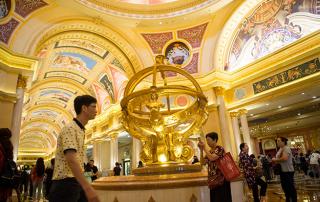 LVS group refinancing likely hailed by markets: CBRE April 23, 2024
LVS group refinancing likely hailed by markets: CBRE April 23, 2024 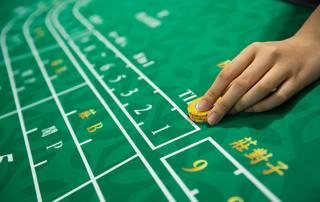 Macau casino GGR US$1.5bln for Apr 1 to 21: JP Morgan April 22, 2024
Macau casino GGR US$1.5bln for Apr 1 to 21: JP Morgan April 22, 2024 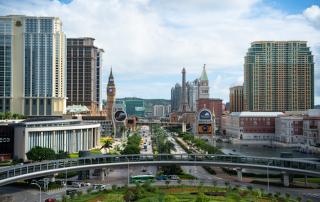 Labour hols Macau GGR, room rates likely below 2019: MS April 24, 2024
Labour hols Macau GGR, room rates likely below 2019: MS April 24, 2024 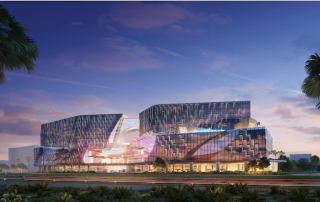 Suntrust gets US$38mln LET loan for Manila casino hotel April 22, 2024
Suntrust gets US$38mln LET loan for Manila casino hotel April 22, 2024






